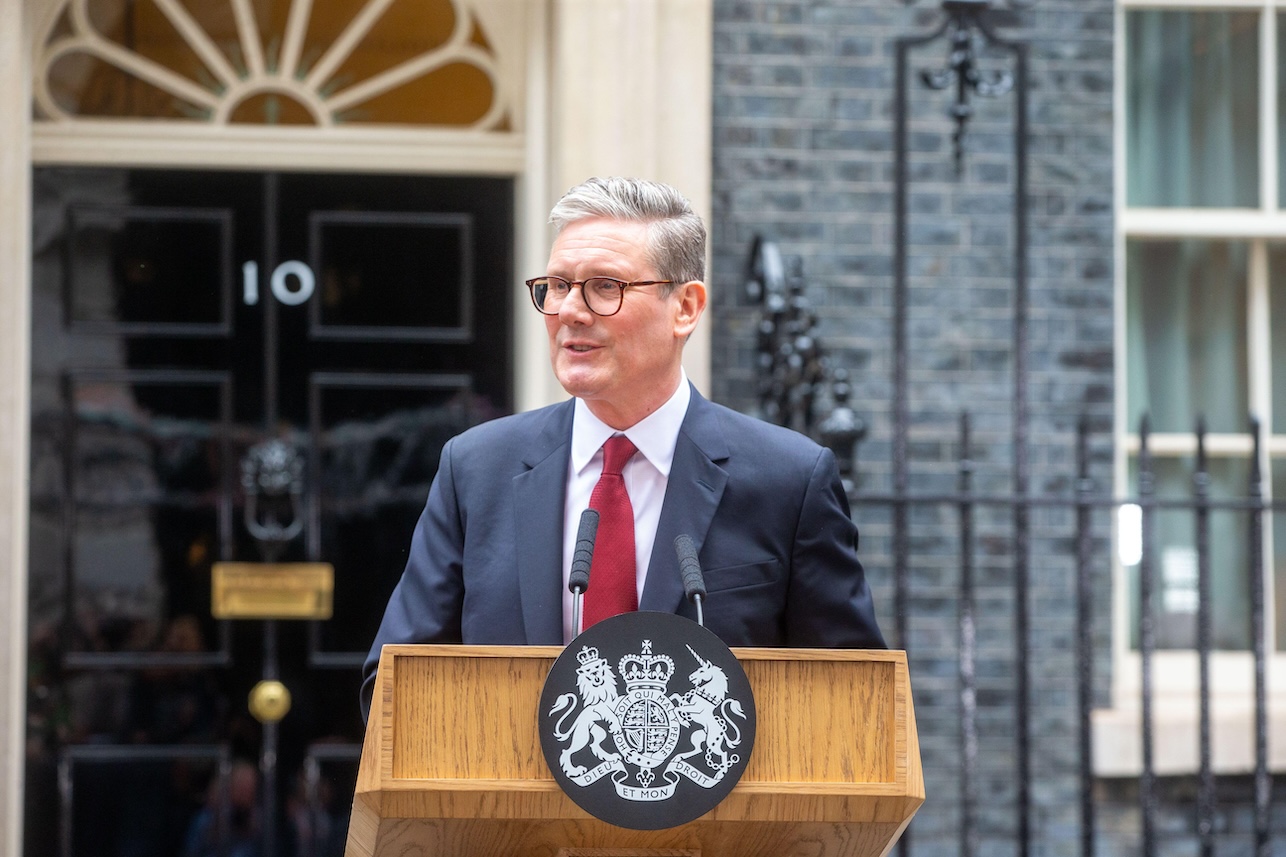Keir Starmer’s off to a flying start, but difficult times lie ahead
Splits on Labour’s left flank could spell trouble for the government.
Keir Starmer’s first week on the job has been a success. His transition from the leader of the opposition to prime minister has been seamless, and his ministerial appointments were well-received. The Labour Party has wasted no time unclogging the sluices of Tory stagnation, announcing proposals for planning reform, tearing up onshore wind farm restrictions, and tackling prison overcrowding.
Over the last couple of days, Starmer has attended the NATO summit in Washington, where he reiterated his government’s commitment to upping defence spending to 2.5 per cent and promised to reset relations with international allies. His performance has felt like a much-needed lesson in statesmanship and full-throttle leadership. Punctuated by brief intervals of sunshine in an otherwise drizzly July – and England’s surprising continued success in the Euros – much of the nation breathes a collective sigh of relief.
But this is just the beginning. Next Wednesday will see the Kings’ speech – the time for the government to set its legislative agenda for the parliamentary session. While Labour has affirmed there will be no policy gimmicks, there are whispers that its caution over public finances may see its first internal rebellion, as left-wing MPs across the house discuss action to force the government to abolish the much-maligned two-child benefit cap.
While any rebel amendment is unlikely to pass at this stage due to Labour’s large majority, the move illustrates how parliamentary dissent could play out under this Labour government.
The recent election saw an unprecedented influx of independent, Green and Liberal Democrat MPs, as the progressive vote splintered over the Labour Party’s perceived failures on Gaza, green policies and public spending. While Labour won the election with a sweeping majority, points of vulnerability were laid bare as cabinet ministers scraped through on wafer-thin majorities.
Danger lurks on the government’s right flank, too. Though the Tory party seems largely consumed by eating itself, the salience of immigration as a top issue for voters grips the attention of those on the right – as well as right-wing legacy media. A large caucus of MPs will pressure Starmer to bring down small boat crossings and levels of legal migration with the backing of national broadsheets.
Parliament is far more politically diverse than it once was. The recent election gave prominence to voices on the fringe. Even if rebellions can’t pass in their numbers, those voices are much louder than they once were, and better able to organise.
Labour may calm some dissent on its left wing by insisting it will be progressive when the time is right and finances allow. But with crises already emerging in public utilities and services, spending may become even tighter than it was. As challenges pile up – and MPs are lobbied by anxious constituents – Labour may find its internal loyalty more brittle than thought.
All parties will use the King's speech to set out their strategies for challenging and scrutinising a Labour government. As momentum builds and alliances form, we will begin to understand how the party will deal with dissent. Even if it gets through next week unscathed, more demands will be made. Starmer could soon find that although leading has - so far - been easy, governing may prove hard.
The Lead is now on Substack.
Become a Member, and get our most groundbreaking content first. Become a Founder, and join the newsroom’s internal conversation - meet the writers, the editors and more.





